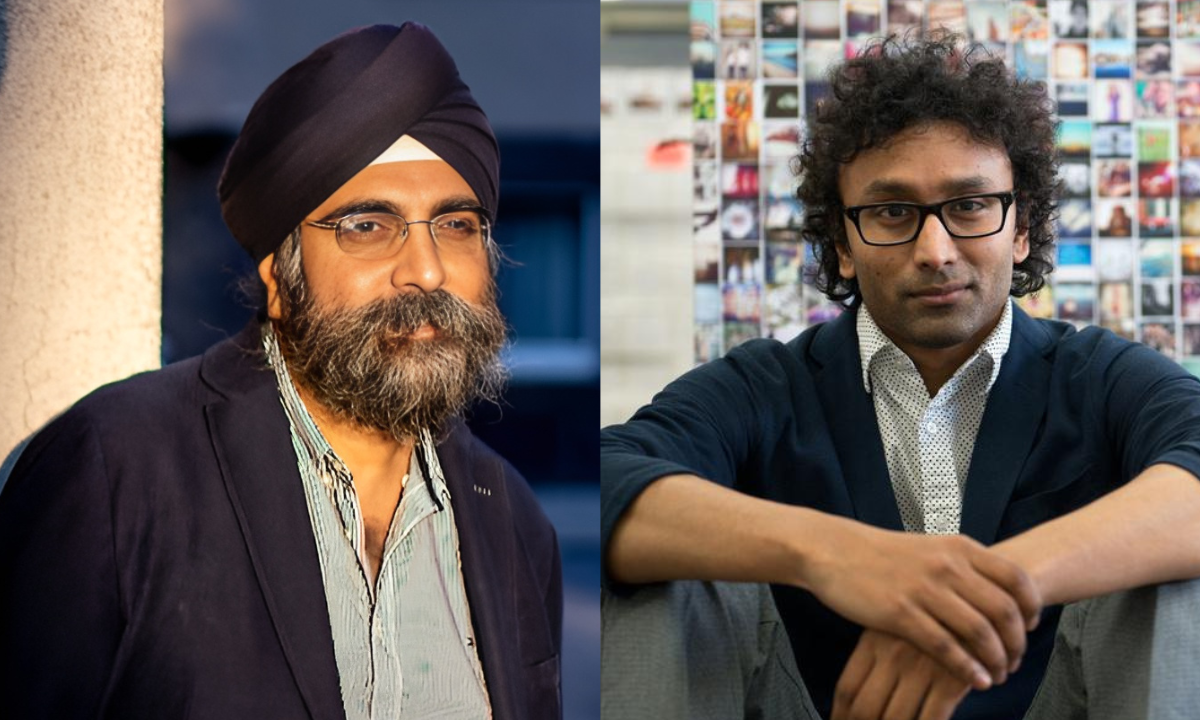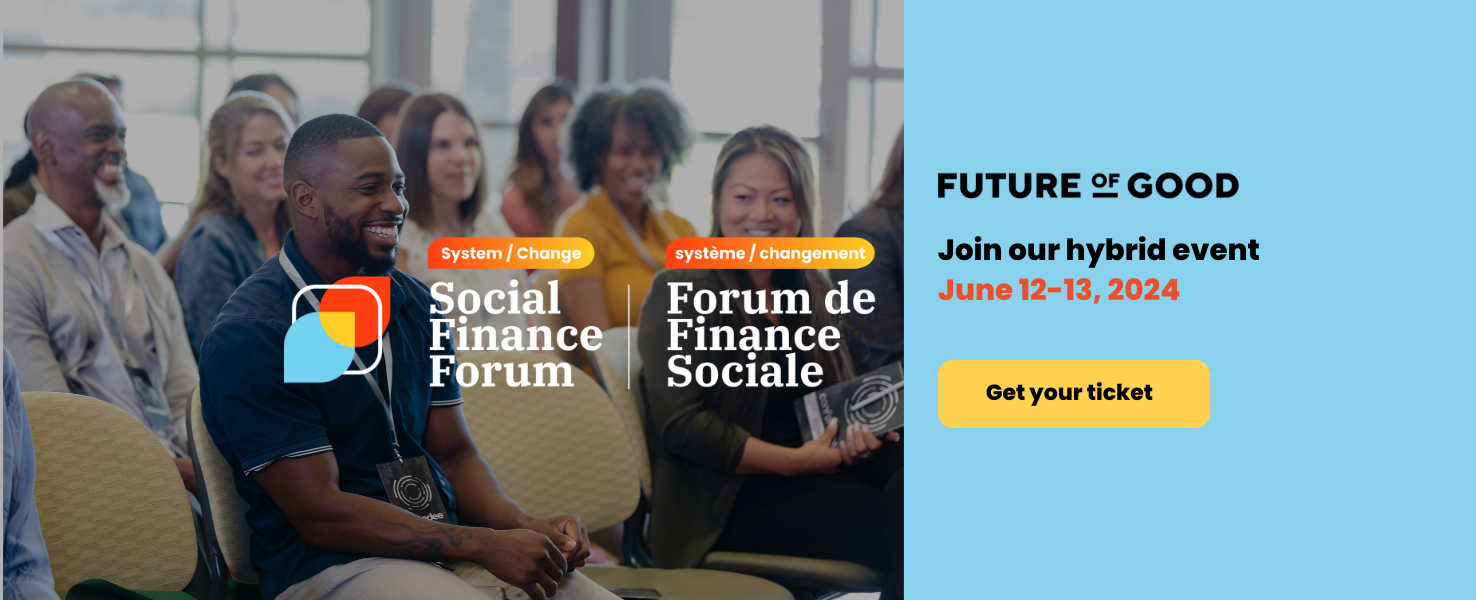Fragile Future: New philosophies of commerce and finance, with Indy Johar
Why It Matters
On a planet where commodities are dwindling, what are the commodities of the future? Do we need a new economic system?

In the latest Fragile Future conversation with Future of Good CEO Vinod Rajasekeran and Dark Matter Labs co-founder Indy Johar, the pair discuss alternatives to existing economic systems and what might be the commodities of the future.
The following has been edited for clarity and brevity.
Vinod: Welcome, everyone, to Fragile Future. This is a series of long-form conversations that examine the societal dynamics of planetary-scale transitions in a really nuanced way. Fragile Future is a collaboration between Dark Matter Labs and Future of Good.
I’m so thrilled again about this conversation and about our ongoing collaboration. It’s been a few months, and lots has happened. So, I’m really excited to get right into it.
Indy: I’m delighted to be able to. Thank you for all the great work that you guys do.
Vinod: In our conversation today, I’d like to examine three philosophies with you. In this era of great transitions, humanity requires a number of new philosophies.
It really feels like we need a new philosophy of commodification, consumption and commercialization. So, let me start off with some grounding.
Two weeks ago, Canada hosted the fourth session to negotiate a global plastics treaty. It was hosted by the UN Environmental Program. And the intention was to develop an internationally legally binding instrument on plastic pollution. It was a massive, you know, multi-day, negotiations. Almost 3,000 delegates participated, representing about 170 members and about 500 observer organizations, or involved NGOs, etc., and a range of other U.N. entities. And this is the fourth in, hopefully, a set of five, and the fifth and final hopefully, negotiation session will be held in Busan in South Korea. And it’s actually in Canada, which is just a couple of weeks ago.
So there were talks on emissions and releases, production, product design, waste management, avoidable plastics, all those kinds of things. And I don’t necessarily want to talk about plastics here, but I use this global treaty, and the conversations, the global conversations and the global discussion as an analog because the generational scale transitions we find ourselves in actually requiring new philosophies, of, commodification and commercialization and consumption
Today we have a very specific notion of commodities, everything from wheat to rare metals to gold and oil and gas, but I want to pause there and pose the question to you: What are the commodities of the future? And what are the textures of a new philosophy of commodities?
Indy: Okay. Starting simple as you always do.
Firstly, start by just underlining your point about it, this is not just a mathematical change in the world or a price differential change. It’s a philosophical change. And by philosophical change, I don’t mean a piece of text. I think neither do you. I think what we mean is how we conceive ourselves and our relationship with the world, and that is a conception. It is not truth, it’s just a conception which we have reinforced using institutions and logic to create a worldview which has become mutually self-reinforcing. And that conception and our institutional logics have thereby replicated into theories of value, theories of price, theories of commodity and everything else that we see around us.
So, it’s worth recognizing that linkage. It’s recognizing the failure is rooted at that deep level. And it’s also worth recognizing that whether it’s plastics or whether it’s CO2, whether it’s soil erosion, whether it’s microplastics in our bloodstreams or whether it’s mental health harms, these are all the micro violences that are resultant of that conception of our world landscape.
I think in the second part of this conversation, we’ve confused infinite consumables with commodities, and we’ve correlated those two things. So we’ve said soil is just a resource and the resource is going to be there forever, and we can just intensify our farming to consume goods.
Our relationship with material is very much the same, and this is rooted in our theory of commodity. You could argue that the true 21st century commodities are going to be intangible goods. They are the true infinite in the system.
I’m also talking about new models of custodianship that are constructed, with rights and obligations constructed digitally and other forms of ways of relating to these to these environments. So, for example, an electric battery network of electric batteries could exist on an open digital trust, and the rights of use of that could be linked from the battery. So you could have a service agreement from that trust to every car. And should that battery fail, the trust would pull it back and drive it to repair. So now you’ve created it into a neutral institutional ledger, which is acting as an aggressive agent to allow for circularity and optimize, not for waste, for optimized circularity and optimize use of those environments and not become a rent-seeking system.
We are now able to create these new classes of institutional layers, which are able to do this supply and demand matching without necessarily becoming rent-seeking systems.
So, there are new classes of stewardship systems that are going to allow us to move into stewardship economies that exist outside market consumption and production economies. And so we have to look at this transformation as new bureaucratic capabilities that are opening these landscapes up because this you can’t open it up between.

So, if you look at a city’s tree canopy, the economic benefits are its economic assets, the effects that are mitigated by that tree canopy, and how those effects match liability owners.
So, for example, if it reduces temperature by 12 degrees in peak load, it reduces your cooling demanded by your energy companies, and it reduces their CapEx requirements, peak load CapEx requirements. That matching capability has an economic asset value. You don’t necessarily have to own the trees. What you own is the economic derivative assets, and those rights and create new classes of economic goods, environments which aren’t rooted to classical theories of ownership.
You could argue we could capitalize the collective intelligence of a city, through similar sorts of models. You could look at the mental health of a city as a new form. You could look at the societal decision making capacity of a city. So, I think we’re going to the next class of economic assets that are going to be entangled. They’re going to be quasi infrastructure orientated, that are going to operationalize in a different way.
So there’s new theories of value, but there’s also new theories of commodities, and there’s new theories of stewardship. And I think we have to be really smart to be able to break these things up.
I also think the other thing that a lot of our work is doing is looking at moving from asset theory to agent theory. So increasingly, our technological capabilities allow us to organize not only through instruction but the capacity for learning in the thing itself. And that agent-ification of the world is then opening up a new dynamic of relationships, which rhymes with history.
So the sort of digital animism of the world allows us to create new relationality in the world, a shift from asset to agent as a shift to stewardship, entangled goods and sort of fully intangible goods. These are operating as quasi-infrastructure functions.
I’m sort of laying that out as a landscape because I think it’s in that landscape that we’ll start to see quite a different type of function, quite a different type of economy, and quite different governance questions.
We’re going to see, I think, the adoption of some of the tools that are used in the financial system as we start to deploy them, and we are able to deal with new forms of digital capabilities, spatial digital capabilities, to be able to reorganize of these systems, the multi-agent systems of sharing and organizing value at the individual level, at the network level, at the aggregate level and the contributor level, and being able to construct these new economic theses is vital to the transition.
Vinod: That was brilliant. I thought about how we’ve got about 10 pathways in my head, and I’m trying to pick where to go next.
Indy: Choose your own adventure. Right.
Vinod: I’m going to start with something that you said at the very outset. You mentioned that we’ve been in this sort of “just do it” theory, but in addition to “just do it,” we also get to think, and that’s a privilege. Do you really feel it’s a privilege to just think?
Indy: Personally, I’ve lived through it, and I think many of us have. You know, you and I have had the privilege of building things, many things, in the course of our careers. And yet, I think both you and I have sometimes been criticized for being thinkers.
I feel it is a privilege because I think it is. It is unusual in the world right now for people to be looking at these deep values and deep risks at the structural level because I think it’s a function of standing on the shoulders and contributions of many other people and being able to integrate knowledge problematically across a chain of thought.
It is a privilege to be able to weave knowledge across these disciplines. And I think this is one of the kinds of key privileges that, unfortunately, the nature of the entanglement of our problem space requires us to be able to weave across these disciplines, whether it is going from the philosophy to the legal frameworks or the financing frameworks, to the kind of value theory to the demand side problems.
The other problem is that most of our organizational theories are so narrow, rigid and narrow, and designed so very narrowly focus on – if you talk about financing, you can talk about law. But the reality is the problem spaces are entangled all the way through.
To listen to the entire conversation, watch the video above.
